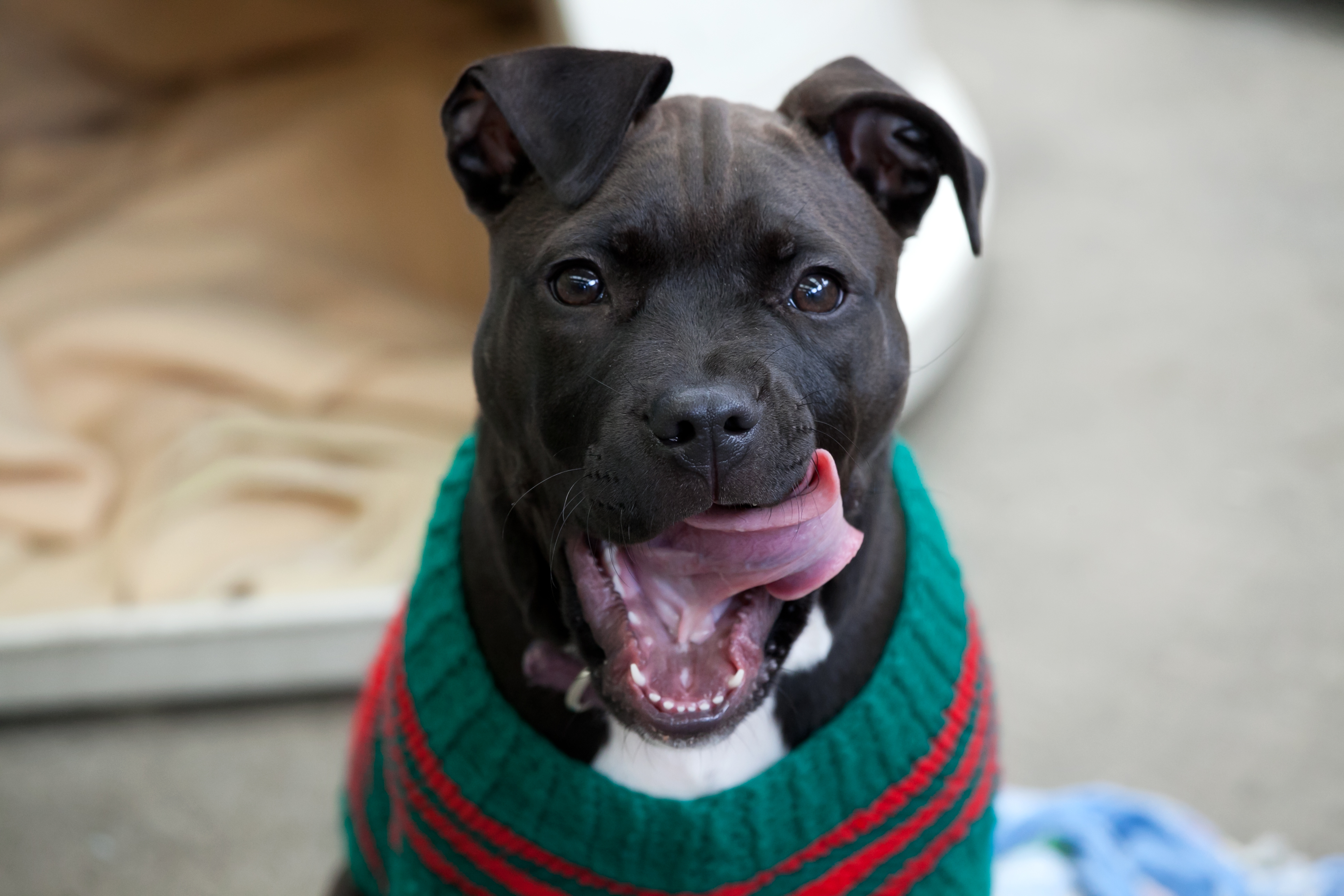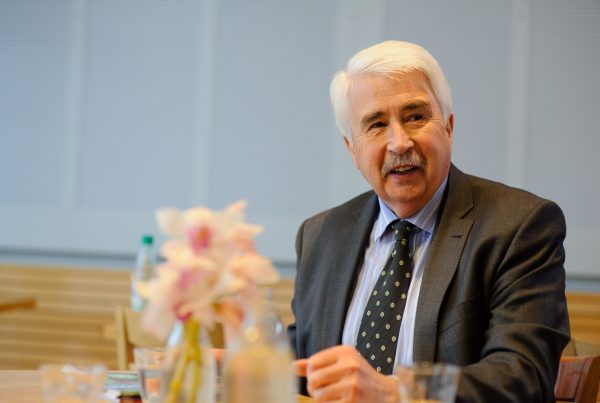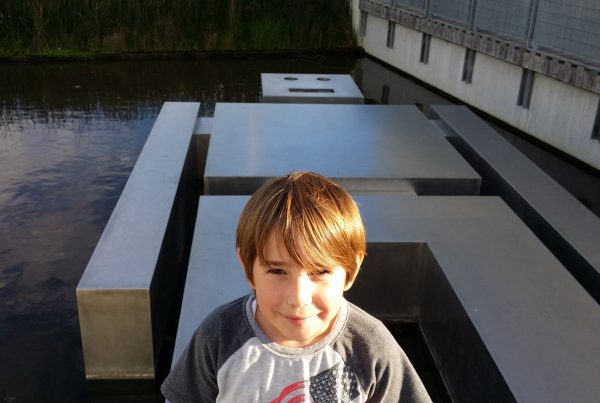
Formed in 1884, and thus nearly 130 years old, the Society for the Prevention of Cruelty to Animals (SPCA) rescues abused and neglected animals, looks after them and finds them new homes, and it also educates the community about looking after our feathered and furred friends. This role in helping around 6,000 animals each year is so important that it is set out in law – and yet the SPCA receives no government or city council funding, leaving it reliant on donations and other fundraising.
Ironically, for many years now, a society that specialises in finding new homes has itself been looking for a new base. Its current main site in Newtown is desperately inadequate. Gattung calls it “cramped”; Corrina Bennett, one of the society’s many volunteers, describes it as “an old house… really quite a horrible environment”.
Having started looking for a new home some time ago, the society was granted permission in 2005 to lease the old Fever Hospital from the Wellington City Council. Built originally in 1919, the hospital had fallen into disuse by the 1990s and was in poor condition. Making it the SPCA’s new home has not been straightforward. As recently as 2011, board issues, the society’s finances and concerns over the project’s $4 million cost seemed to threaten its viability. However, the society has turned things around, operates at a small profit, and, as it stands on the verge of moving into its new home permanently, has raised $3 million of the sum needed.
Animals, especially those that have been neglected or abused, are a passionate subject for many. “I grew up with animals and have always really loved them,” says Gattung, who has supported the SPCA in one way or another for 30 years. “I don’t have any children,” she adds. “That may make it more likely that I find animal causes close to my heart. And someone’s got to speak up for animals and support them.”
Catherine Torrance, who is leading the ‘Rehome’ project to relocate to the new site, says she and her husband Iain, the society’s chief executive, “put our lives on hold” to get things sorted out and make the new home a reality. The new centre, she says, is about much more than just rescuing and rehoming animals. “It is about education – education in animal welfare and developing the animal care and veterinary staff of the future. This new centre will allow us to invite the community into our world and educate, educate, educate.”
As Gattung points out, SPCA stands for the Society for the Prevention of Cruelty to Animals, but it could just as well stand for the Society for the Promotion of Compassion towards Animals. And promoting that kind of compassion has wider effects, she says. Research shows a strong linkage between, among other things, people’s likelihood of committing domestic violence and their likelihood of being violent towards animals. Teaching people to be nice towards animals, in other words, helps them be nicer towards their fellow human beings – and the younger they start, the better. “If you can get children to show compassion to animals when they are young, that can impact on their relationship with people as well.”

Corrina Bennett, who since starting as a volunteer in 2006 has done everything from dog walking to cat fostering to fundraising, says the imminent move is an exciting one. “There’s such support for this among volunteers. It has been on the books for a while, but now it’s real. [And] how much better it will be for us humans to work on but also how much better it will be for the animals and the whole community.”
Volunteering at the SPCA, she says, has been “a really awesome way of getting involved in the community and meeting people”. Not content with just volunteering, she is also a regular donor to the society. She says there can be “upsetting” sights, given the state of some of the rescued animals. But the SPCA sees more cases of neglect than of actual deliberate cruelty, and while there are “some really horrible stories… at the end of the day, it’s the good stories that keep you coming back”.
Her own cat, Timmy, is one such. He got his name because he was a rescue cat, found under a house – “you couldn’t pick him up… we called him ‘Timmy’ because he was so timid. Now, he blobs out in your lap. He’s not timid anymore! And you hear that story hundreds or thousands of times.”
The new site does have other stories, of course. In particular, it is reputed to be haunted. But that doesn’t seem to be putting anyone off. “Yes, it is haunted but it has a positive and caring feel,” Torrance says. “Our animals seem to like the ghostly inhabitants and vice versa.” The project even has a dedicated “psychic medium” who is helping the society “learn how to live in harmony with the building”.
When the SPCA does move in, it will hold “a parade of the animals” from the old site to the new, with some animals – dogs especially – being walked, and some being transported. “We want to make this a real ceremony and an event to remember,” Torrance says. And as the society gears up for that move, the big challenge is raising the remaining $1 million. “We have got a loan from the bank for the last $1 million and we really want to close that gap,” Gattung says. They will be able to draw on the proceeds of selling the old centre in Newtown, as well as the usual fundraising standbys: dinners, functions, street appeals, direct mail, and so forth. And when people can see the new facility in all its glory, it will be “much easier”, she says, to make the case for donating to the society.
In the society’s ideal world, of course, it wouldn’t need so much space to house rescued animals, because people wouldn’t neglect them in the first place. If the number of rescued animals does drop off significantly, Torrance says, “We will continue to educate, educate, educate – and have more space to do that. It will just be a history lesson instead – [and] how great would that be?”
Either way, the new building looks set to give new life to a long-established society. “It feels wonderful,” Gattung says. “It’s a bit of a romantic feel… like a 1920s building, with wide verandas, from when they were treating TB patients all those years ago. I have seen it looking dilapidated, so for me it’s just magic to see it almost ready and to have a wonderful new building for the next 50 years or 100 years.”
[info]
What Wellington SPCA does
The Wellington SPCA is the second largest of the 48 individual SPCAs in New Zealand, as well as one of the oldest, having been formed in 1884. It covers the whole of the greater Wellington region, with a satellite centre in Waikanae.
The core of the Wellington SPCA’s work is to rescue animals, reunite them with their owners where possible, rehabilitate those that need it, and ultimately rehome them. But it also provides a wide range of services, more than any other SPCA in the country. These services include:
Law enforcement
Its six animal welfare inspectors investigate around 800 complaints of animal abuse and neglect each year. The SPCA provides support and guidance to owners, and where necessary, undertakes prosecutions.
Animal ambulance
The society’s ambulances respond to as many as 2,500 call-outs of animals in need of assistance each year.
Education
Its award-winning Humane Education Programme promotes responsible pet ownership to the community, with a strong focus on children.
Pet therapy
While they are being found a new home, animals in the SPCA’s care also help the sick and elderly in the community by participating in regular pet therapy programmes at hospitals and schools across the region.
Veterinary
The Wellington SPCA has vets on site, and is the only SPCA to provide a full public veterinary service. It also promotes responsible pet ownership by offering discounted veterinary services to Community Service Card holders.
Low-cost desexing
The SPCA addresses the root cause of the large unwanted animal population in
the community through targeted low-cost or donation-based desexing programmes for owners of animals who may not be able to afford to do it themselves.
In May 2012, the Wellington SPCA was presented with the ‘Saving Lives’ award by the Royal New Zealand SPCA, recognising it as the best SPCA in the country, as voted by its peers.
Source: SPCA website[/info]
[warning]How you can help
There are lots of different ways to support the work that the SPCA does, especially as it continues to raise the remaining $1 million for its new home. Below are a few of the things people can do to help.
Volunteer
Volunteers can help with the daily work of cleaning and feeding orphaned animals, walking dogs, taking animals on therapy visits, or simply sitting quietly and stroking a frightened cat. Animal centre volunteers, who are needed during weekdays and weekends, help clean, feed and care for animals. The work includes hands-on cleaning, setting out food and toys, grooming cats, and getting puppies used to everyday noise and activities.
If you have some time available to help the society, please email volunteer@wellingtonspca.org.nz or call 04 389 8044.
Fostering
Volunteers can also provide love, care and a safe, warm environment for animals in their own home. They may need to care for an animal for a few weeks or a few months at a time – until they are either old enough or well enough to come back into the centres to be adopted.
Sponsorship
The SPCA is still seeking sponsors for the individual areas of the Fever Hospital, and for the overall facility. The nature of the design allows sponsorships for the different wards and areas of the Fever Hospital. If you are interested in possible sponsorship, please email program.manager@wellintonspca.org.nz or call 04 389 8044 ext. 829.
Donations
To make a donation, you can do one of the following:
- Make a donation online at org.nz/donate.htm
- Donate via phone: call the credit card hotline on 04 389 7387 (04 389 PETS) with your credit card details. Outside office hours you can leave details of your name, address and contact phone number, along with your credit card number, expiry date and amount you would like to donate on the answer phone, and the SPCA will process your donation on the next working day.
- You can also phone the SPCA on 04 389 8044 or email funds@wellingtonspca.org.nz
- Alternatively, you can donate over the counter at any Wellington SPCA op shop.
Donations in kind
If you have a professional trade or work for a company that could donate services or products that could be of benefit to the society, just email program.manager@wellingtonspca.org.nz
For more information on all these options, visit wellingtonspca.org.nz/youcanhelp.htm
Source: SPCA website
[/warning]






